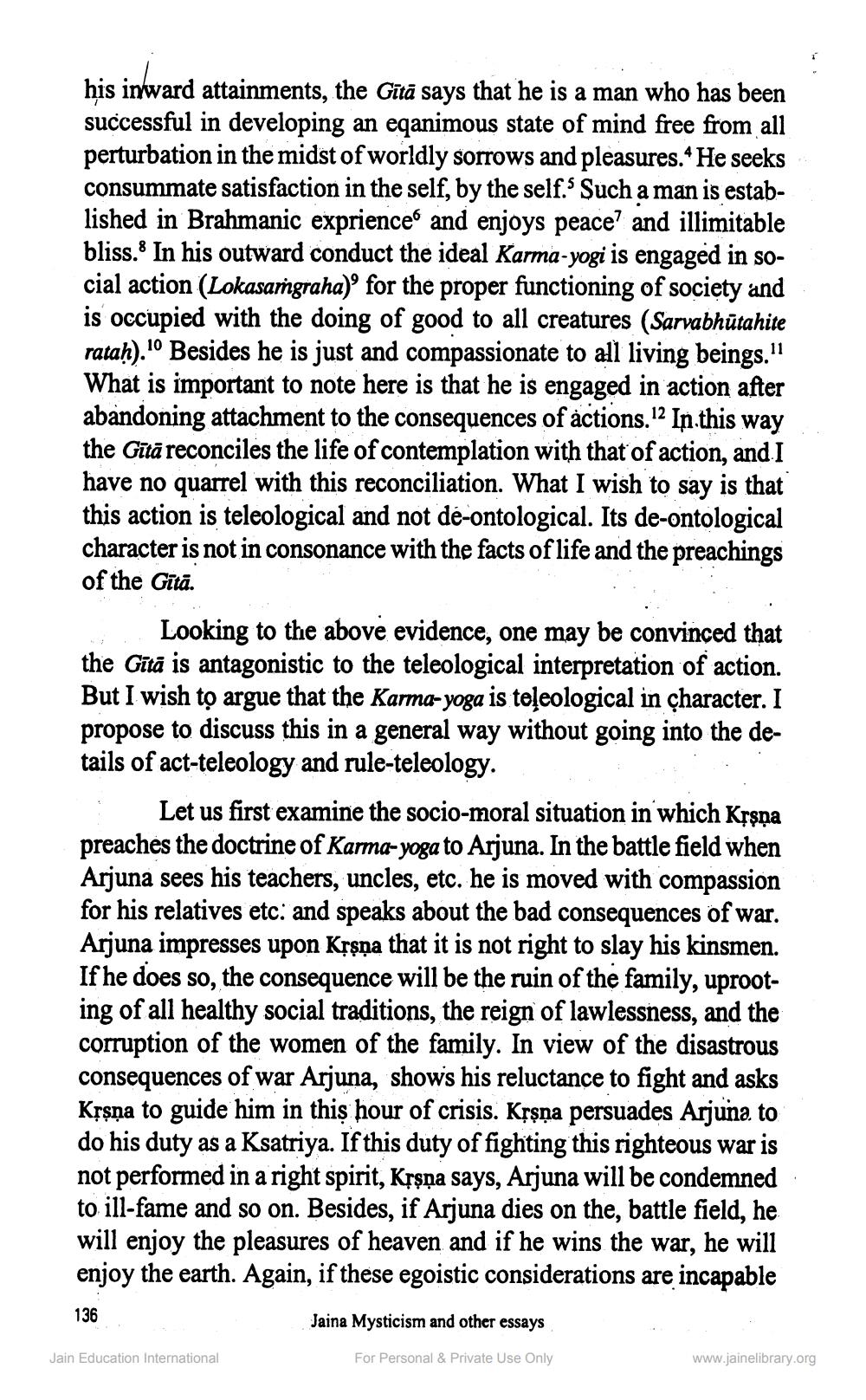________________
his inward attainments, the Gītā says that he is a man who has been successful in developing an eqanimous state of mind free from all perturbation in the midst of worldly sorrows and pleasures." He seeks consummate satisfaction in the self, by the self. Such a man is established in Brahmanic exprience and enjoys peace and illimitable bliss. In his outward conduct the ideal Karma-yogi is engaged in social action (Lokasaṁgraha)' for the proper functioning of society and is occupied with the doing of good to all creatures (Sarvabhūtahite rataḥ)."' Besides he is just and compassionate to all living beings." What is important to note here is that he is engaged in action after abandoning attachment to the consequences of actions. In this way the Gītā reconciles the life of contemplation with that of action, and I have no quarrel with this reconciliation. What I wish to say is that this action is teleological and not dé-ontological. Its de-ontological character is not in consonance with the facts of life and the preachings of the Gītā.
Looking to the above evidence, one may be convinced that the Gitā is antagonistic to the teleological interpretation of action. But I wish to argue that the Karma-yoga is teļeological in character. I propose to discuss this in a general way without going into the details of act-teleology and rule-teleology.
Let us first examine the socio-moral situation in which Krşņa preaches the doctrine of Karma-yoga to Arjuna. In the battle field when Arjuna sees his teachers, uncles, etc. he is moved with compassion for his relatives etc: and speaks about the bad consequences of war. Arjuna impresses upon Krşņa that it is not right to slay his kinsmen. If he does so, the consequence will be the ruin of the family, uprooting of all healthy social traditions, the reign of lawlessness, and the corruption of the women of the family. In view of the disastrous consequences of war Arjuna, shows his reluctance to fight and asks Kļşņa to guide him in this hour of crisis. Krşņa persuades Arjuna to do his duty as a Ksatriya. If this duty of fighting this righteous war is not performed in a right spirit, Krşņa says, Arjuna will be condemned to ill-fame and so on. Besides, if Arjuna dies on the, battle field, he will enjoy the pleasures of heaven and if he wins the war, he will enjoy the earth. Again, if these egoistic considerations are incapable
Jaina Mysticism and other essays
136
Jain Education International
For Personal & Private Use Only
www.jainelibrary.org




